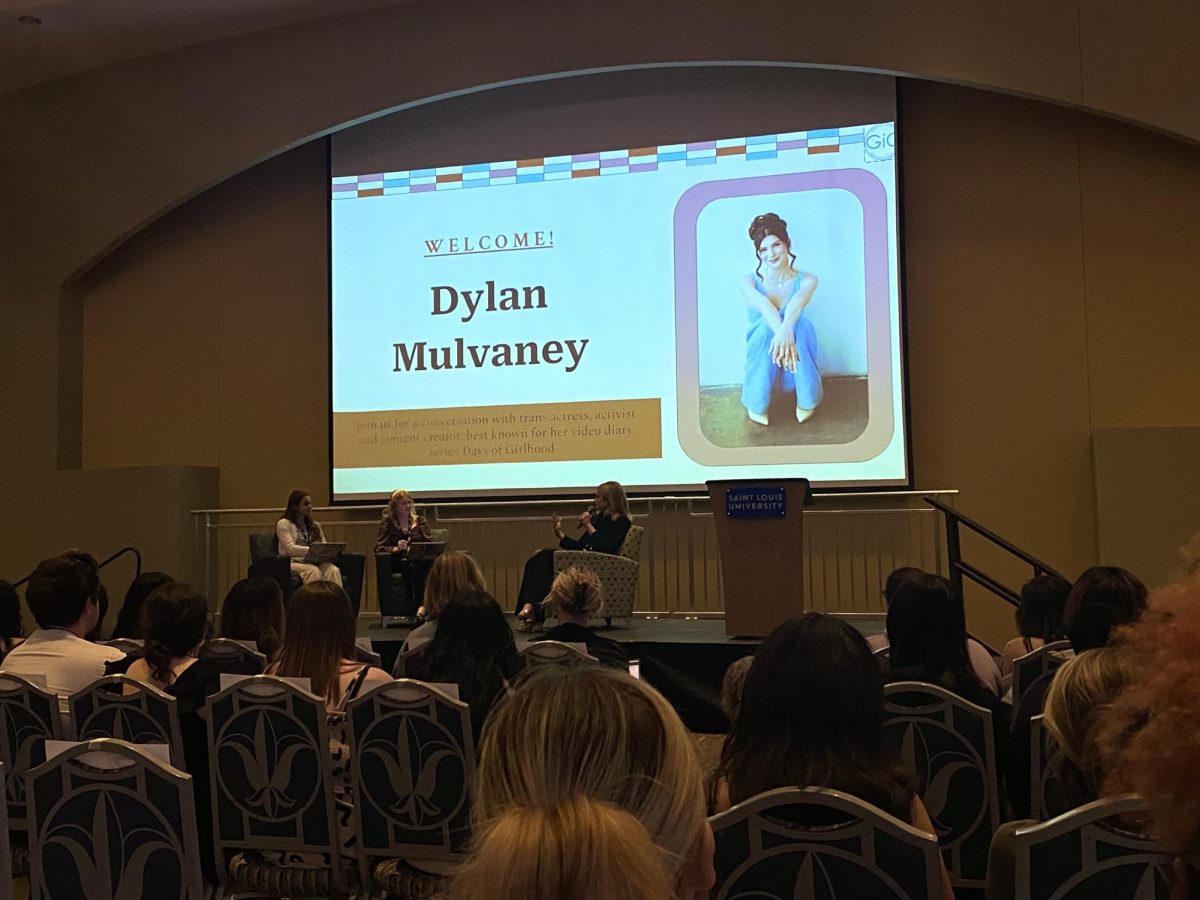A prominent scholarly journal produced at Saint Louis University marked its 40th anniversary at a reception at the Samuel Cupples House this Thursday night. The celebration for the African American Review, a cultural-literature based journal, was part of a national symposium hosted by the African American Literature and Culture Society, held at SLU from Thursday, Oct. 25 until Saturday, Oct. 27.
Aileen Keenan, managing editor of AAR, has been helping to organize the conference, which takes place annually, this year at SLU. She said she is glad that the event coincides with the anniversary of the AAR.
“A lot of the members [of the Society] have published in the journal,” said Keenan. She said that she hopes that this year’s symposium will show members “what we’re doing on campus as far as diversity and education . and academic programs.”
Published first from Indiana State University in 1967, AAR has been put together almost entirely in Suite 317 at SLU’s Humanities Building for the past six years.
Keenan has been editor of the journal for the past three years. She works alongside Joycelyn Moody, who took over the position of editor-in-chief from Joseph Weixlmann, Ph.D., SLU’s provost, in 2004. Weixlmann served as the managing editor for AAR beginning in 1976 and brought the journal with him from ISU when he accepted a position as a dean at SLU in 2001.
Keenan said that during his 31 years as editor, Weixlmann did a lot to help convert the journal into what it is today. One of the first things he did was change the journal’s title, then Negro American Literature Forum, to Black American Literature Forum. The journal was printed under this name for several years.
“Over time, as we printed other forms of African-American expressive culture, just having Literature in the title didn’t work,” said Weixlmann. Thus, he said that about 15 years ago the Forum became the African Literature Review. Keenan said the journal has undergone significant makeovers in both form and content, since its earliest issues were printed in the late 1960s.
“The physical format [of the journal] has changed tremendously,” said Keenan. She said that earlier issues were just 40 pages of a thicker paper bound into a paperback magazine, but that “now, it’s a beautiful seven-by-10, 200-page volume with a glossy laminated cover.”
“We chose the format for something that felt a little less traditionally academic . [It would be] a design that would be engaging to general readers as well as academic readers,” said Weixlmann.
AAR is published quarterly and sent mostly to academics and university-library subscribers.
Weixlmann said that AAR is now “one of the two most respected journals of African-American literature” in the nation; and that the journal shares this honor with the journal Kalalu. Keenan attributes AAR‘s success partly to the growth of African- American cultural studies in general.
“There has just been such an exponential explosion of interest in this area of study,” said Keenan. “The canon of literature expanded; there was more to write on, more to criticize.” AAR has also shifted its content focus over the years.
“The journal has always been so diverse, but in the beginning, there was more of a focus on poetry and fiction,” Keenan said. AAR now prints prose, poetry, book reviews and literary criticism relevant to African American culture.
“We still embrace the diversity of types of scholarship, whether it’s creative or critical,” said Keenan. AAR showcases a hugely variant list of contributing writers. The journal has contributors from “the Ivory Coast, Germany, Iceland, Spain, Australia,” she said. “We have independent scholars, prisoners [and] people who have just graduated from high school.” Though AAR is produced on SLU’s campus, the journal has only ever had one submission from the SLU community, which was a work put in for review by a university graduate student.
This year, in honor of its 40th anniversary, AAR will publish three special editions of their journal in three quarters, each focusing on a special topic. The special-edition topics include a discussion about a novel that was reputedly the first ever written by an African-American woman, the life and works of Paul Lawrence Dunbar and the “post-soul aesthetic,” a fairly new African-American literary school of thought.






